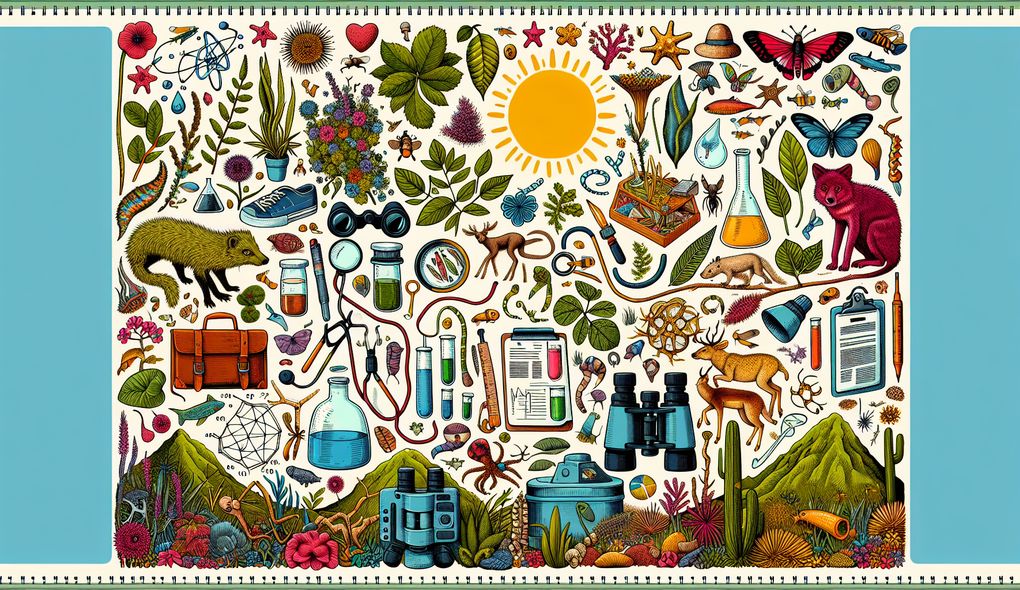How would you approach evaluating the success of a conservation project? What metrics or indicators would you use?
SENIOR LEVEL

Sample answer to the question:
To evaluate the success of a conservation project, I would start by clearly defining the project's goals and objectives. I would then design a set of metrics and indicators that align with these goals and measure the project's progress and impact. These metrics could include parameters such as changes in species population, habitat quality, or community engagement. I would also collect data through field research and monitoring, using techniques such as population surveys, habitat assessments, and stakeholder interviews. By analyzing this data, I can evaluate the project's effectiveness and make any necessary adjustments to ensure its success.
Here is a more solid answer:
To evaluate the success of a conservation project, I would first conduct a thorough assessment of the specific ecosystem or species that the project aims to protect. This assessment would involve using field research methods to gather data on population size, habitat quality, and biodiversity. I would also analyze the project's impact on local communities and their engagement in conservation efforts. To ensure accuracy and reliability, I would use data collection techniques such as camera traps, GPS tracking, and community surveys. Additionally, I would rely on GIS and data analysis software to analyze the collected data and identify trends or patterns. By comparing the initial data with the ongoing data, I could assess the project's progress and make informed decisions to improve its outcomes.
Why is this a more solid answer?
The solid answer goes into more detail about the candidate's approach to evaluating the success of a conservation project. It demonstrates their expertise in field research methods, data collection, and analysis. The answer also highlights their ability to use GIS and data analysis software. However, it could further improve by providing specific examples of past projects where the candidate utilized these techniques.
An example of a exceptional answer:
To evaluate the success of a conservation project, I would employ a comprehensive approach that combines various metrics and indicators. Firstly, I would assess the ecological impact of the project by conducting biodiversity surveys, monitoring changes in species populations, and assessing habitat quality. This would involve using advanced field research methods such as DNA analysis, remote sensing, and statistical modeling. Secondly, I would evaluate the project's social impact by measuring community engagement, conducting surveys to assess local perceptions, and analyzing the project's contribution to sustainable economic development. Lastly, I would ensure the project's long-term sustainability by analyzing the effectiveness of management strategies, monitoring policy changes, and establishing partnerships with relevant stakeholders. By adopting this holistic approach, I can ensure that the project's goals are effectively met and contribute to the broader conservation efforts.
Why is this an exceptional answer?
The exceptional answer demonstrates a comprehensive approach to evaluating the success of a conservation project. It showcases the candidate's expertise in advanced field research methods, data analysis, and impact assessment. The answer also highlights their understanding of the project's social and economic dimensions, as well as their ability to ensure the long-term sustainability of the project. Overall, this answer goes above and beyond the basic and solid answers by providing specific examples of techniques and strategies that the candidate would use.
How to prepare for this question:
- Familiarize yourself with various field research methods and data collection techniques commonly used in conservation biology.
- Stay updated with the latest advancements in GIS and data analysis software.
- Develop strong analytical and problem-solving skills through practice and research.
- Enhance your communication and interpersonal skills, as effective collaboration is essential in conservation projects.
- Gain experience working in diverse outdoor conditions and remote locations to demonstrate your adaptability.
What are interviewers evaluating with this question?
- Expertise in field research methods and data collection
- Strong analytical and problem-solving skills
- Excellent communication and interpersonal skills
- Adaptability to work in varied outdoor conditions and remote locations

